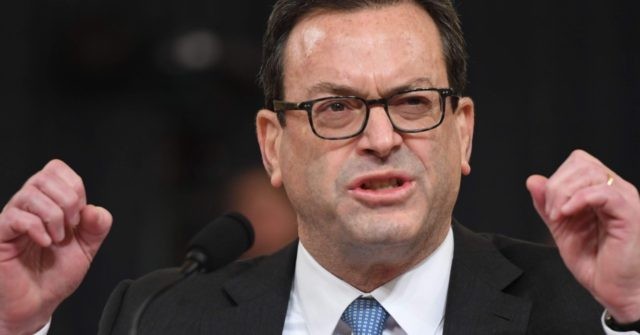
As far-left Democrats yell about bribery and high crimes and misdemeanors, let’s turn to their own side of the aisle, starting with the once-penniless President Obama who left public office a very, very rich man.
He just bought a Martha’s Vineyard mansion for a cool $11.75 million, which is in addition to his Kalorama lookout post, his Chicago home, and possibly a Hawaii spread. At some point you’ve made enough…but not him.
Ostensibly, it’s mainly the work of his book deals. No bribery there, right?
Well, ahem…
According to Investment Watch (IWB), something doesn’t quite look right.
Obama gave Pearson Publishing $350 million to create Commoncore text and Pearson gave Obama a $65 million dollar book deal in return.
…and…
Pearson Publishing was paid for Commoncore but Penguin Random House Publishing did the Obama book deal. But there is commonality with the two:
From Wiki:
Penguin Random House was formed on July 1, 2013, upon the completion of a £2.4 billion transaction between Bertelsmann and Pearson to merge their respective trade publishing companies, Random House and Penguin Group. Bertelsmann and Pearson, the parent companies, owning 53% and 47%, respectively.
In July 2017, Pearson agreed to sell a 22% stake in the business to Bertelsmann, thereby retaining a 25% holding.
That sounds like a classic bribe. You give me this big contract and I’ll kick back some to you at a later date. Chicago Way. The book cash flowed to Obama in 2017. Pearson incidentally, seemed to lose money anyway, given the public distaste for Obama’s federal takeover of education via Common Core, which extended to states cutting the program.
President Trump complained about the apparent quid pro quo last summer.
It’s not the first time Obama has done things like this either. IWB notes that Obama’s net neutrality stance benefited Netflix, and surprise, surprise, he got a lucrative deal wtih them, too.
One hand washes the other.
Book deals, incidentally, have been some pretty spectacular avenues for bribery based on their apparent deniability. Here’s a famous one from Russia in 1997 that rocked the Russian political landscape:
Ethical questions were raised this week when a Russian reporter revealed that Mr. Chubais and his collaborators had accepted $90,000 each for writing a monograph on the history of privatization. The publisher, Segodnya Press, is owned by Oneksimbank, a powerful financial institution that recently won a series of coveted auctions of state property.
Chubais is Anatoly Chubais, former Russian finance minister and famed Russian ‘reformer,’ who apparently reformed his bankbook, too. He was in tight with Democrats, particularly John Podesta, and might have been the role model or maybe the guy who gave Democrats the ideas about how useful the publishers could be.
Here’s what Chubais might have taught them:
In the middle of these seven circles of hell stood Anatoly Chubais. He was in the middle of Russia’s privatization effort which saw huge state assets sold for pennies on the dollar to oligarchs while Russian citizens were completely cheated of the shares they were promised, either through devaluation, fire-sale desperate unloading to raise cash (remember, many were starving), intransparent transactions, and sometimes disinformation and thuggery: False dates and places for sales were announced to conceal real ones. Thug vehicles sometimes blocked roads so no one could line up to buy the shares they were entitled to. It was that bad. Once again, Chubais was in the middle of it.
Chubais got snared in a bribery scandal of Clintonian character – he was given a $90,000 book advance (huge sum in Russia at the time) paid for by a murkily backed publisher (sound familiar?) which looked a lot like a disguised bribe or payoff. That caused a scandal and got him booted from his position as finance minister. He continued to tool around in cronyish business deals and retained the good opinion of Harvard as a ‘reformer,’ which was quite a node of Clinton loyalists – Larry Summers, being one, John Podesta being on friendly terms with the crowd, too, by making speeches there.
There are a hundred ways to Sunday for politicians to get rich both in and out of public office. As the Democrat House now focuses on impeaching President Trump, their hypocrisy is pretty glaring. Obama’s book deals are what need investigating, not President Trump’s bid to halt corruption in Ukraine.
As far-left Democrats yell about bribery and high crimes and misdemeanors, let’s turn to their own side of the aisle, starting with the once-penniless President Obama who left public office a very, very rich man.
He just bought a Martha’s Vineyard mansion for a cool $11.75 million, which is in addition to his Kalorama lookout post, his Chicago home, and possibly a Hawaii spread. At some point you’ve made enough…but not him.
Ostensibly, it’s mainly the work of his book deals. No bribery there, right?
Well, ahem…
According to Investment Watch (IWB), something doesn’t quite look right.
Obama gave Pearson Publishing $350 million to create Commoncore text and Pearson gave Obama a $65 million dollar book deal in return.
…and…
Pearson Publishing was paid for Commoncore but Penguin Random House Publishing did the Obama book deal. But there is commonality with the two:
From Wiki:
Penguin Random House was formed on July 1, 2013, upon the completion of a £2.4 billion transaction between Bertelsmann and Pearson to merge their respective trade publishing companies, Random House and Penguin Group. Bertelsmann and Pearson, the parent companies, owning 53% and 47%, respectively.
In July 2017, Pearson agreed to sell a 22% stake in the business to Bertelsmann, thereby retaining a 25% holding.
That sounds like a classic bribe. You give me this big contract and I’ll kick back some to you at a later date. Chicago Way. The book cash flowed to Obama in 2017. Pearson incidentally, seemed to lose money anyway, given the public distaste for Obama’s federal takeover of education via Common Core, which extended to states cutting the program.
President Trump complained about the apparent quid pro quo last summer.
It’s not the first time Obama has done things like this either. IWB notes that Obama’s net neutrality stance benefited Netflix, and surprise, surprise, he got a lucrative deal wtih them, too.
One hand washes the other.
Book deals, incidentally, have been some pretty spectacular avenues for bribery based on their apparent deniability. Here’s a famous one from Russia in 1997 that rocked the Russian political landscape:
Ethical questions were raised this week when a Russian reporter revealed that Mr. Chubais and his collaborators had accepted $90,000 each for writing a monograph on the history of privatization. The publisher, Segodnya Press, is owned by Oneksimbank, a powerful financial institution that recently won a series of coveted auctions of state property.
Chubais is Anatoly Chubais, former Russian finance minister and famed Russian ‘reformer,’ who apparently reformed his bankbook, too. He was in tight with Democrats, particularly John Podesta, and might have been the role model or maybe the guy who gave Democrats the ideas about how useful the publishers could be.
Here’s what Chubais might have taught them:
In the middle of these seven circles of hell stood Anatoly Chubais. He was in the middle of Russia’s privatization effort which saw huge state assets sold for pennies on the dollar to oligarchs while Russian citizens were completely cheated of the shares they were promised, either through devaluation, fire-sale desperate unloading to raise cash (remember, many were starving), intransparent transactions, and sometimes disinformation and thuggery: False dates and places for sales were announced to conceal real ones. Thug vehicles sometimes blocked roads so no one could line up to buy the shares they were entitled to. It was that bad. Once again, Chubais was in the middle of it.
Chubais got snared in a bribery scandal of Clintonian character – he was given a $90,000 book advance (huge sum in Russia at the time) paid for by a murkily backed publisher (sound familiar?) which looked a lot like a disguised bribe or payoff. That caused a scandal and got him booted from his position as finance minister. He continued to tool around in cronyish business deals and retained the good opinion of Harvard as a ‘reformer,’ which was quite a node of Clinton loyalists – Larry Summers, being one, John Podesta being on friendly terms with the crowd, too, by making speeches there.
There are a hundred ways to Sunday for politicians to get rich both in and out of public office. As the Democrat House now focuses on impeaching President Trump, their hypocrisy is pretty glaring. Obama’s book deals are what need investigating, not President Trump’s bid to halt corruption in Ukraine.
via American Thinker Blog
Enjoy this article? Read the full version at the authors website: https://www.americanthinker.com/blog/





